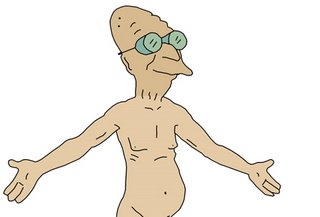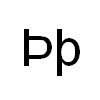
Friday, June 13, 2008
Reminiscing
A Youtube video I made of a trip a few years back.
Labels: Faroe Islands, Icelandic, Youtube
Wednesday, September 13, 2006
The Daily Hump: Huzza

By my estimates no character in the history of everything has used the interjection huzza more than Futurama's Professor Farnsworth. The word itself is simply an exclamation, like hurrah. The OED states:
[Huzza] is mentioned by many 17-18th c. writers as being originally a sailor's cheer or salute: ‘It was derived from the marine and the shouts the seamen make when friends come aboard or go off’ (North Exam. (1740) 617). It may therefore be the same as heisau! hissa! originally hauling or hoisting cries.The OED provides us with an additional vital link, this time from 1549, which demonstrates an early modern connection between huzza and maritime activities:
The marynals began to heis vp the sail, cryand, heisau, heisau.(Somewhat tangentially, that word heis in the quote above is the forefather of our modern verb heeze meaning to hoist. It's from the Icelandic word hisa.)
On a related note there are also huzza-men and huzza-women, but interestingly enough there are actual differences between their definitions beyond just gender. A huzza-woman is defined as "one given to noisy or riotous conduct: a rake, a gallant" while a huzza-man is one who is hired to shout "huzza".
Labels: Icelandic, The Daily Hump
Thursday, August 24, 2006
Oh me so Þorny...
 ...well, at least in modern Icelandic, Old Norse, and Old and Middle English. Thorn, or þorn (Þ, þ), traces its roots back to Proto-Germanic, where it has been reconstructed as *Thurisaz.
...well, at least in modern Icelandic, Old Norse, and Old and Middle English. Thorn, or þorn (Þ, þ), traces its roots back to Proto-Germanic, where it has been reconstructed as *Thurisaz.So, where has Þ gone in our modern English alphabet? Alas, we've replaced this ancient letter with the rather boring digraph th. Just þink about it; we could save ourselves the effort of typing one extra letter every time we spell a word that uses either a voiceless interdental fricative (like th as in the English word thick) or a voiced dental fricative (like th as in the English word the). Þe possibilities are endless.
Sometime during þe 14þ century th started to become more common in English. As its popularity waned, poor þ began to lose its shape (more specifically, it lost its ascender), first appearing similar to the Old English letter wynn (Ƿ, ƿ), þen later morphing into a Y. You can still see ghosts of our þorny linguistic past in pseudo-archaic usages such as "Ye olde...". I þink it's important to point out þat no one during this "Ye" period would ever pronounce the word Ye as yee; in this case, the Y still retained its þ'isitiy (th).
:-Þ
Labels: Icelandic, Middle English, Old English, Old Norse, Proto-Germanic